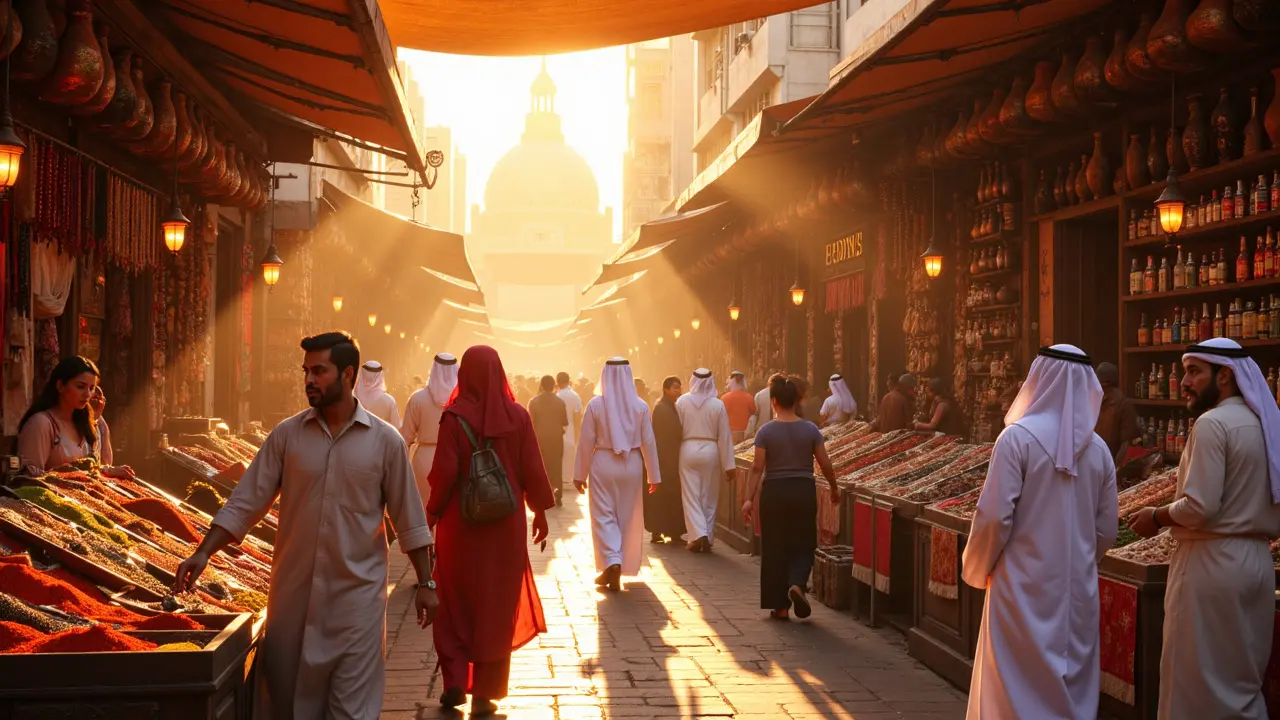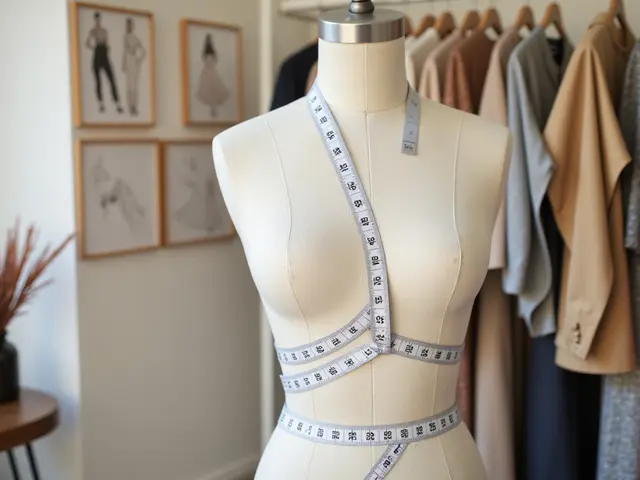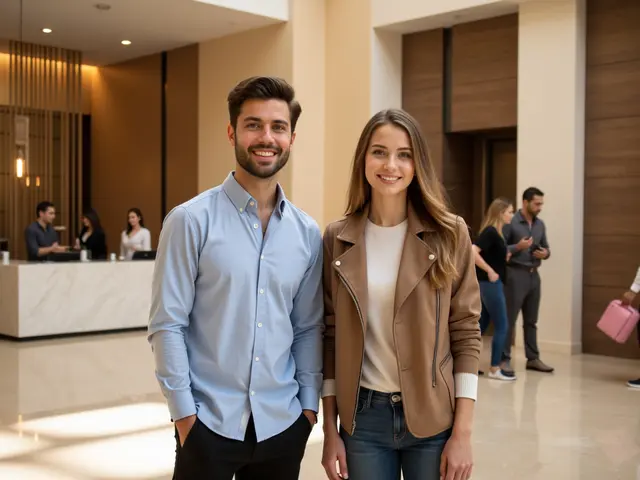Trying to experience Dubai’s culture through the eyes of a local can flip your whole idea of the city. Sure, everyone’s heard about the Burj Khalifa and luxury malls, but there’s a deeper Dubai right behind the bright lights. Want a shortcut to feeling at home here? Start by trading touristy spots for the kind of daily places locals actually go.
If you want to get a real feel for Dubai’s vibe, go where the city’s heart beats—neighborhood cafés over hotel restaurants, family-owned shawarma stands over fancy chains, and old-school markets (souks) instead of just sticking to the big malls. Al Fahidi Historical District is one spot where the past and present mix in a way you can’t find at the top of a skyscraper. Wander those windy alleys, grab karak chai from the oldest tea joints, and chat with shop owners who’ve watched Dubai change.
For anyone new to Dubai, blending in is all about small things—like knowing abayas and kanduras aren’t required for visitors, but dressing modestly in public is a sign of respect. Pick up on greetings like 'Marhaba' or 'Salam Alaikum,' and neighbors might just invite you to their home for Arabic coffee. If you get lucky, saying yes to a majlis invitation (a traditional social gathering) will show you a side of Dubai that most travelers miss out on. Don’t worry if you’re not sure how to behave—most hosts will guide you through the customs.
- What Makes Dubai’s Culture Unique
- Eat, Drink, and Mingle: Food Rituals Up Close
- Dive Into Dubai’s Markets and Souks
- Join the Community: Local Events and Social Life
- Respect and Etiquette: When in Dubai
What Makes Dubai’s Culture Unique
Dubai’s mix of old traditions and shiny new lifestyles makes it stand out. It’s rare to see a city move so fast while holding onto its roots. Over 85% of Dubai’s population is expat, but you can still spot Emirati culture—from the way Friday brunch is almost a ritual to the strong sense of hospitality locals show at home and in business.
One thing you’ll notice right off is the respect for privacy and personal space. In homes, a majlis (sitting room) is central. Men and women often gather separately, especially in traditional families. It’s normal here for both Arabic and English to be used in daily life, and you’ll hear dozens of other languages too. That says a lot about Dubai culture: it’s modern, flexible, but proud of its beginnings.
Ramadan shapes the rhythm of the city. Work days are shorter, and you’ll see restaurants covered up during fasting hours. But as soon as the sun sets, everyone heads to iftar tents across town—places like Madinat Jumeirah or even Sheikh Mohammed Centre for Cultural Understanding let newcomers join in for a real taste of local customs.
Dubai’s respect for its own history is clear in museums and restored sites. The Dubai Museum in Al Fahidi Fort gives you a no-frills view of desert life before the oil boom. Heritage Village at Al Shindagha brings old crafts back to life—with demos on pearl diving and weaving. And don’t forget, camel racing is still a big deal—head out to Al Marmoom Camel Racetrack early on a Friday and you’ll see why.
Here’s a quick snapshot to put Dubai’s cultural mix in numbers:
| Fact | Details |
|---|---|
| Population (2024) | 3.65 million |
| Expats vs. Emiratis | Approximately 85% expats, 15% Emiratis |
| Main Languages | Arabic, English, Hindi, Urdu, Tagalog |
| Major Religion | Islam (with freedom for other religions) |
| Heritage Festivals | Dubai Shopping Festival, Al Marmoom Heritage Festival |
Getting the full picture is about looking beyond skyscrapers and flashy cars. Spend time in old Dubai, try Emirati seafood at Bu Qtair, or see how old and new work together at the Etihad Museum. That’s when Dubai’s unique vibe really comes through.
Eat, Drink, and Mingle: Food Rituals Up Close
The heart of daily life in Dubai is built around food and sharing it. Locals mix old-school Emirati dishes with influences from the many expat communities. You’ll spot a family breaking bread under a palm tree just as easily as you’ll find Turkish baklava or Indian biryani stacked high at weekend brunches.
You haven’t really tapped into Dubai culture until you sit down for a late-night shawarma or an early morning balaleet (sweet saffron noodles with an omelet on top) at a street spot like Al Mallah in Satwa. Friday brunch might get all the headlines at hotels, but look out for Friday morning markets and communal breakfasts in neighborhoods like Al Qouz, where the vibe is totally different—think friendly noise, street food, and families crowding plastic tables.
Sharing food means more than just eating. It’s a social ritual here. Most Emiratis still greet guests with dates and hot gahwa (Arabic coffee mixed with cardamom). Watch out for your tiny coffee cup—if you want a refill, keep it held out. If you’re done, shake it from side to side. This small act actually sends a clear message and saves everyone the awkwardness.
For Ramadan, everything shifts. You might notice restaurants are quieter during the day, but after sunset, places like Ravi Restaurant in Satwa or the Ramadan tents at the JW Marriott Marquis go wild with buffets. A local tip: in Ramadan, try an Iftar meal in the old city area—these massive spreads for breaking fast are the purest kind of Dubai hospitality.
"In Dubai, food is a connector—whether you’re making friends over mansaf or learning about Ramadan at an Iftar, the table brings people together." — Fatma Al Mulla, Emirati food writer
Here’s a quick guide to some classic bites you should try:
- Machboos: A spiced rice and meat dish that’s the pride of Emirati homes. You’ll catch it served at cultural festivals and Fridays in many local houses.
- Luqaimat: Little golden dough balls, sweet and sticky with date syrup. Bite-sized, and beware—they’re addictive.
- Karak chai: Spiced tea that you can find for just a few dirhams at roadside cafés everywhere. The unofficial fuel of Dubai’s busy crowd.
- Shorbat Harees: During Ramadan, this slow-cooked wheat and meat porridge is almost always on the Iftar table.
Dining out in Dubai is big business. Take a look:
| Food Experience | Estimated Cost (AED) | Where Locals Go |
|---|---|---|
| Street shawarma meal | 12-20 | Al Mallah, Automatic Restaurant |
| Traditional Emirati lunch | 30-50 | Al Fanar, Logma |
| Friday hotel brunch | 250-500 | JW Marriott Marquis, Atlantis The Palm |
| Chai and snacks | 5-15 | Tea Junction, Filli Café |
Want to meet new people? Check out cooking classes at the Sheikh Mohammed Centre for Cultural Understanding or book a farm tour in Al Khawaneej, where you’ll eat what you pick. Food is the no-fuss way to dive into authentic Dubai, because you can always start a conversation with, "Have you tried this yet?"
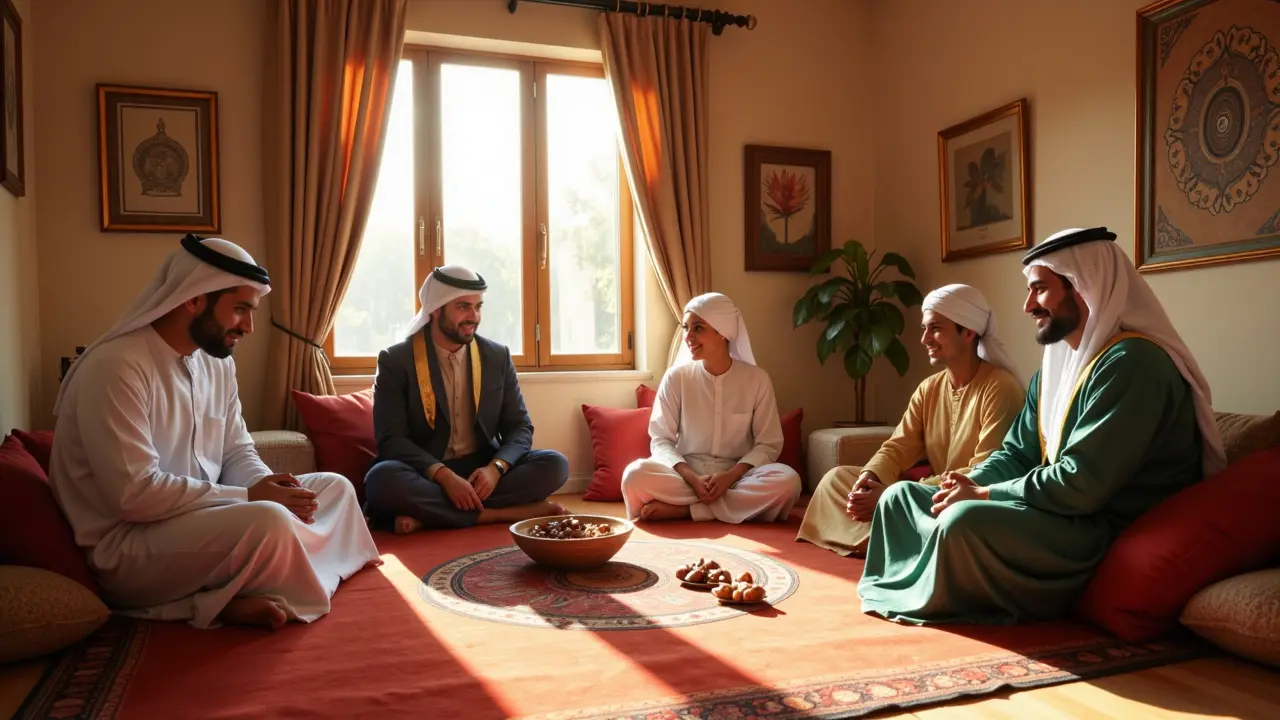
Dive Into Dubai’s Markets and Souks
If you want to feel the real buzz of Dubai culture, the city’s markets and souks do it best. Forget fancy malls for a bit—these places show off daily life, old-school bargains, and a mix of smells and colors you just can’t fake.
Start off with the Gold Souk in Deira. Even if you’re not buying, it’s wild to see corridors lined with gold jewelry from floor to ceiling—some displays hold over 10 tons of gold! Right nearby, the Spice Souk is a total attack on your senses (in a good way). You’ll see sacks of saffron, dried limes, and oudh wood. If you want to cook Emirati food at home, this is where locals get the best price on unique ingredients. Haggling is normal—just don’t be shy, most vendors expect it.
The Textile Souk in Bur Dubai gives you a real look at the city’s trading spirit. It’s packed with cottons, silks, and flashy fabrics, with tailors ready to whip up anything from an abaya to a suit. Locals come here for custom clothes and school uniforms, and the atmosphere is always lively, especially in the evenings when the weather cools.
- Gold Souk, Deira: Best visited in the mornings before crowds. Look for shops with the Dubai Gold Rate sign for fair prices.
- Spice Souk: Always ask for samples before you buy, and compare at least three stalls—it’s part of the experience.
- Textile Souk, Bur Dubai: Custom-made outfits usually take 1-2 days. Bargain politely for tailoring costs, and check out the side alleys for hidden gems.
If you prefer something more modern, check out Ripe Market at Academy Park on weekends. Here, you’ll find local handicrafts, fresh produce, and coffee stands, all run by Dubai-based entrepreneurs. It’s outdoors, family-friendly, and has a chilled community vibe you don’t always get at big malls.
| Souk | Main Goods | Best Visiting Time |
|---|---|---|
| Gold Souk (Deira) | Gold & Jewellery | Weekdays, Morning |
| Spice Souk | Spices, Herbs, Oudh | Evening, after 5pm |
| Textile Souk (Bur Dubai) | Fabrics, Tailoring | Late Afternoon |
| Ripe Market | Artisan Food, Crafts | Saturday & Sunday |
Last tip—carry cash. Most souk stalls still work best with dirhams in hand, and keep your receipts, especially for gold. These markets are where both locals and long-timers go when they want a taste of what makes Dubai different from anywhere else.
Join the Community: Local Events and Social Life
If you really want to click with Dubai’s community, mix with people where they spend their time—at local events, pop-ups, and gatherings that go way beyond the tourist map. Here’s the deal: most Dubai residents check Time Out Dubai, Visit Dubai, or WhatsOn.ae to catch what’s happening each weekend. Events here are always changing, so a quick scan every Thursday will keep you in the loop.
You’ll find everything from flea markets at Alserkal Avenue to poetry jams at The Fridge or Open Mic nights at Kave in Alserkal. Don’t skip the Creekside—often there’s live Emirati music or even calligraphy workshops. Want something family-friendly? Try the Ripe Market at Police Academy Park, which runs every winter with food stalls, crafts, and fitness classes. If you’re looking for authentic Dubai culture, these are the places you’ll see Emiratis and expats hanging out together.
Sports are also a huge part of social life. Join a pickup football match at Al Ittihad Sports Club or find a paddle court through Playtomic. Running and cycling clubs like Dubai Creek Striders let you work up a sweat and make new friends at the same time. Even Friday morning yoga at Kite Beach turns into a social spot after class!
Here’s a snapshot of some go-to events and where to find them most weekends:
| Event | Best Location | Season |
|---|---|---|
| Ripe Market | Police Academy Park, Academy Park Umm Suqeim | October - April |
| Art Nights | Alserkal Avenue, DIFC Gate Village | All year |
| Open Mic/Karaoke | Kave, The Fridge | All year |
| Dubai Shopping Festival | Across Dubai (especially Deira, Downtown, Dubai Mall) | January - February |
If you’re new or just feeling a bit awkward heading out alone, there are meetup groups just for that. Try Dubai Expat Meetup or find groups for photography, tech, or foodies on Meetup.com. Plenty of folks in Dubai are always up for a coffee or a night out, so don’t be shy!
And don’t forget the Ramadan tents and National Day celebrations. During Ramadan, pull up to one of the big tents near Jumeirah Beach or Expo City after sundown—iftar meals are served for everyone. On December 2, look for Emirati dance, fireworks, and parades, especially in City Walk and Downtown. These moments are the heart of community life in Dubai—jump in and you’ll fit right in before long.
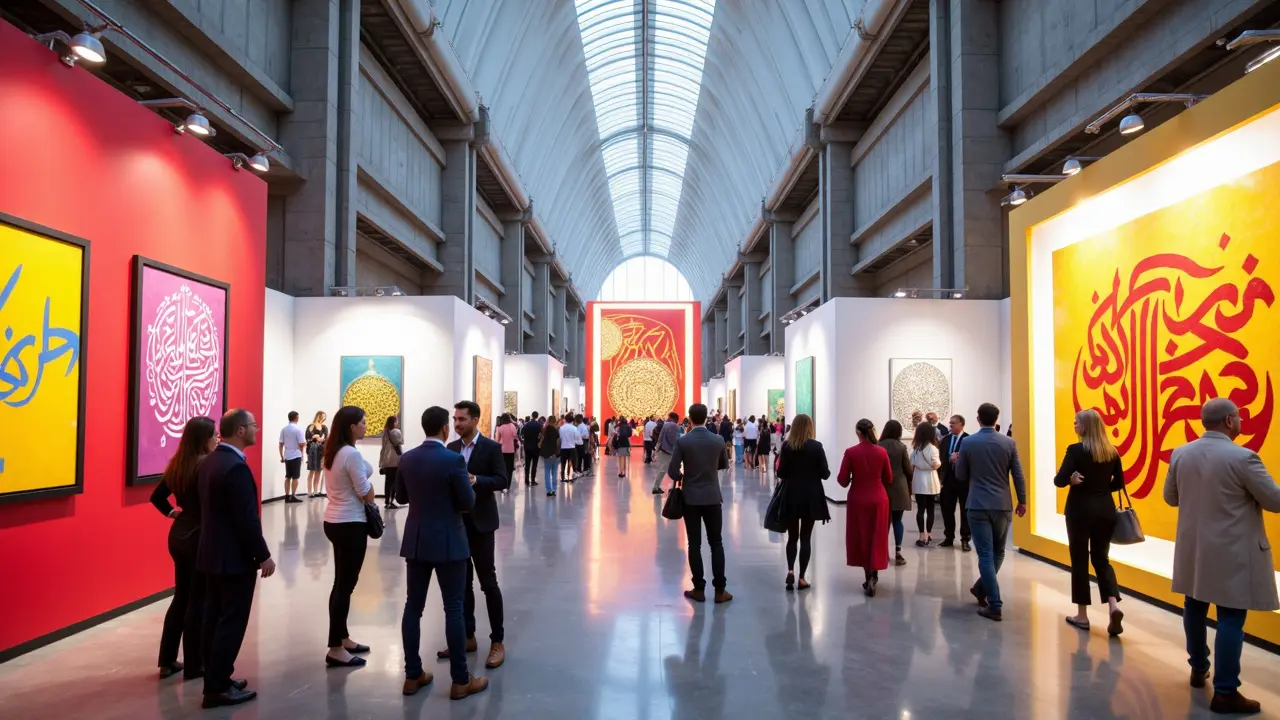
Respect and Etiquette: When in Dubai
Living or traveling in Dubai is way smoother when you’ve got the local respect and etiquette basics down. The city moves fast, but traditions matter, especially with how you talk, dress, and behave in public. You don’t need to be perfect—just show some effort and people appreciate it.
Dress code comes up first. Dubai’s hot, but loungewear and tank tops are for the pool or home. In malls, offices, and on the Metro, cover shoulders and knees. Men do well in longer shorts or jeans, and women feel comfortable in dresses, skirts, or pants that land near the knee. Bring a scarf or pashmina for shoulders at mosques or when visiting older areas. At Jumeirah Mosque, you can borrow an abaya if you need to. Respect goes both ways: nobody expects tourists to know everything, but making the effort keeps things smooth.
Public displays of affection are a big no. Holding hands is usually fine for married couples, but hugs and kisses should wait for private spaces. Swearing, rude gestures, and loud disputes can actually get you fined—it’s enforced, not just a rumor.
It’s polite to stand when greeting elders or anyone in a formal setting. A simple "Salam Alaikum" will take you far. When invited into a home—or even a casual majlis—take off your shoes at the door. If you’re offered coffee, accept it with your right hand (the left hand is seen as less clean). If you’ve had enough, a gentle shake of the cup means you’re done.
- During Ramadan, avoid eating or drinking in public during daylight hours—even chewing gum counts. Restaurants have private sections or delivery for non-fasters, but in public, be discreet.
- Photography: Always ask before snapping pictures of people, especially women. In some places (like government buildings or military sites), photography is banned altogether.
- Alcohol: Only drink in licensed venues like hotels, clubs, or private homes. Never drink and drive—the UAE has a zero-tolerance policy.
Here’s a glance at fines for common etiquette slip-ups in Dubai:
| Offense | Potential Fine (AED) |
|---|---|
| Swearing in public | Up to 2,500 |
| Public intoxication | 2,000+ |
| Offensive gestures | Up to 5,000 |
| Eating/drinking in public during Ramadan (daytime) | Up to 2,000 |
Bottom line: respect is key. When in doubt, follow what locals do or just ask—most people in Dubai are happy to explain. Nailing these etiquette points helps everyone get along and lets you enjoy the city without worries.

